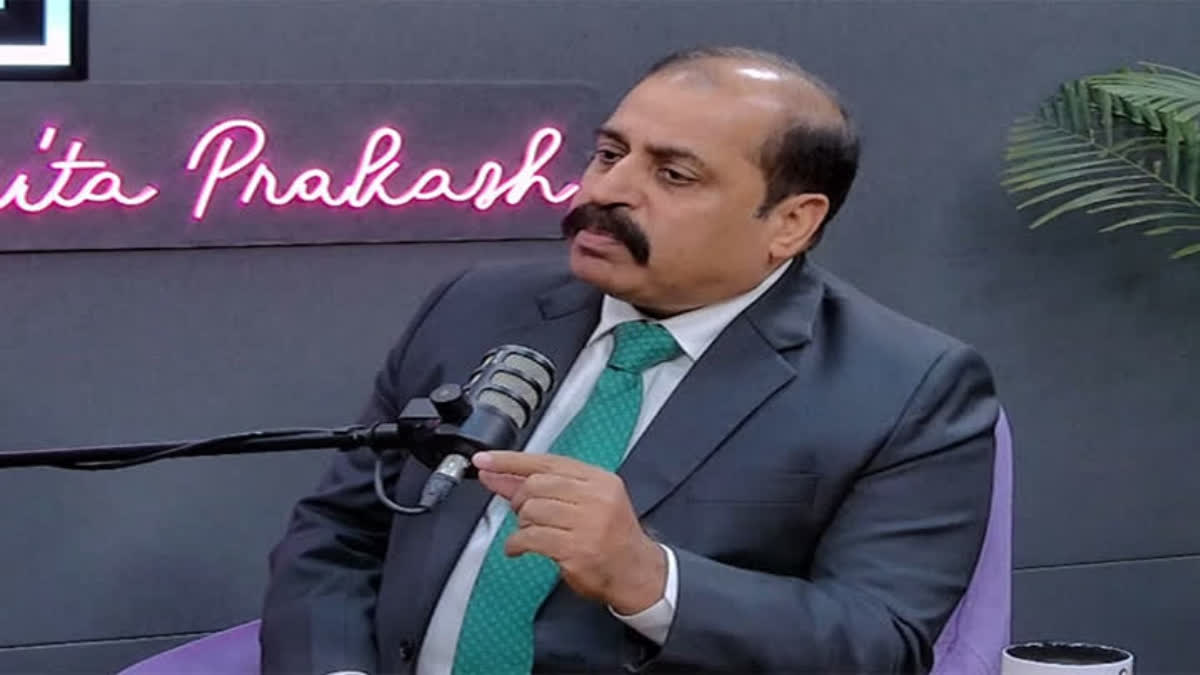New Delhi: Former Indian Air Force (IAF) chief RKS Bhadauria spoke about the settlement of ex-gratia to a deceased Agniveer soldier's family, explaining that the process takes time due to comprehensive guidelines that usually span two to three months. He detailed the steps involved in the ex-gratia compensation process and addressed concerns regarding the time required to finalise payments.
"There is a process for ex-gratia and other amounts because if it is a battle casualty or physical casualty which is attributable, it is managed by the government and therefore it has to be established. That process of establishment follows certain guidelines. The post-mortem report should come, all the incident reports, the court of inquiry, and the report from the police--these are the major elements. This process needs to be completed. It is no different in the case of a normal soldier or an Agniveer. It is the same," Bhadauria said in an interview with ANI.
Speaking about the time taken to settle all payments to the deceased soldier's next of kin, he said, "Normally it takes two to three months because there is an inquiry involved." Bhadauria denied allegations that families of Agniveers are kept in the dark about the compensation process, saying that defence personnel in the unit take care of the family and explain the process in detail.
"Every unit takes great care. They are at pains to be in touch with the family. They are always in touch with the family and they explain at length," he said.
Bhadauria reasoned that due to the trauma experienced by the family of the deceased, a sense of "confusion" might arise. "You must imagine a family that has gone through this trauma. There are a lot of people interacting and advising. So it is that which leads to a sense of confusion to get created," he said.
Bhadauria also pointed out that, in the event of a soldier's death, a sizeable portion of the insurance amount is credited to the next of kin.
"Whenever such an incident happens and somebody loses their life, in all cases--whether it is a battle casualty, physical casualty, attributable, or non-attributable--the insurance amount gets credited straightaway. In the case of a normal soldier, they have their policies. They normally credit 50 per cent straightaway within 24 or 48 hours, and then they meet the family and ask how they would like the rest, whether in their name or children's name," he said.
Bhadauria stressed that there is no confusion about the next of kin for the soldier, as they are clearly defined in advance. He also said that the deceased soldier's family is provided with financial guidance. "The next of kin is clearly defined. There is no confusion. The money can only go to the account of the next of kin. There is a lot of financial guidance given to the family, which many of the soldiers' families would need. This is also provided by the insurance company through our officers and men," he said.
Sharing an attribute of the insurance payable to all enrolled under the Agnipath scheme, the Retired Air Chief Marshall said that unlike regular soldiers the Agniveers do not need to contribute any portion of their salary towards insurance and the entire amount is paid by the Government of India.
"In the case of Agniveer in particular, the insurance is paid by the Government of India. The Agniveers don't even contribute. In the case of a regular soldier, every month roughly Rs 5000 is cut. You are into a contributory insurance scheme, in all three Services. Roughly Rs 5000 is charged for sepoys, which is Rs 60000 per year and you get insured. The insurance figures are a little different in the three services but of the order of around Rs 50-60 lakhs for sepoys. That is contributory. In the case of Agniveers, they do not contribute. Government of India pays the insurance, should something happen," Bhadauria said.
Amid the ongoing controversy over compensation for Agniveer Ajay Kumar's family, Air Chief Marshal RKS Bhadauria (Retired) has clarified the situation. He explained that while a portion of the compensation has already been disbursed, the remainder will be settled once the necessary paperwork is completed. Bhadauria addressed the controversy surrounding financial aid, explaining the current status of payments and the steps needed for finalizing the ex-gratia compensation.
"I think the recent controversy has been around financial aid or whatever payments have been made, whether they have been made or not. The Army has released a media brief stating that Rs 98.39 lakh have been paid. This is primarily the insurance from the Government of India, and there is a DSP account with the bank which ensures that the payment of Rs 50 lakh and Rs 48 lakh from the Government of India also goes through. That has already been cleared," the Retired Air Chief Marshal said in an exclusive conversation with ANI.
Bhadauria said that unless the police report comes through and it is settled that the case is "battle casualty" attributable, the ex-gratia cannot be paid from the central welfare fund.
"You have to wait for the paperwork to be over for all the final settlement of account that takes place. For that, one of the critical things is the police report. Based on that final thing...whether it is battle casualty attributable unless the attributability comes, the ex gratia cannot be paid from the central welfare fund. That is a complete fund. The Ministry of Defence does it. It is also dependent on the reports that come from the police. In this case, the Jammu and Kashmir Police will send its report. I think those actions should have been completed. It was in the final stages as I knew last week," the Retired Air Chief Marshall said.
Bhadauria said that Agniveer Ajay Kumar's family will receive an additional Rs 67 lakh, and the total emoluments for his next-of-kin will amount to Rs 1.65 crore.
"Some more money will be transferred. That will be the ex-gratia from the Army central welfare fund and his balance of payment for the unserved portion and the Seva Nidhi package. So over Rs 67 odd lakhs further will go. So total emoluments that his next-of-kin will get is of the order of Rs 1.65 crores. So these are the hard facts," he said.
Agniveer Ajay Kumar was killed in a landmine blast near the Line of Control in the Rajouri district of Jammu and Kashmir. The confusion over the financial compensation paid to the deceased Agniveer led to a political slugfest between the ruling Bharatiya Janata Party and the opposition parties.
Read More



